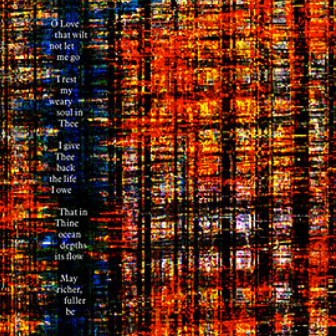“O Love That Will Not Let Me Go” was written on the evening of Matheson’s sister’s marriage. Years before, he had been engaged, until his fiancée learned that he was going blind and she told him that she could not go through life with a blind man. He went blind while studying for the ministry, and his sister had been the one to care for him through the years, but now she was gone. He was now 40, and his sister’s marriage brought a fresh reminder of his own heartbreak. It was in the midst of this circumstance and intense sadness that Matheson wrote this hymn, of which he said:
“I am quite sure that the whole work was completed in five minutes, and equally sure that it never received at my hands any retouching or correction. I have no natural gift of rhythm. All the other verses I have ever written are manufactured articles; this came like a dayspring from on high.”
Most Gnus think this hymn is very often accompanied, and consequently sung, far too fast. It needs to be taken at a pace where all the words have room to be sung without any sense of hurry. I have provided a copy which has the words of each verse under/above the notes. If hymn publishers did this it would be marvellous for those who have to sing the harmony. But it would cost more in time and money so most publishers don’t bother.
O Love that will not let me go,
I rest my weary soul in thee;
I give thee back the life I owe,
that in thine ocean depths its flow
may richer, fuller be.
O Light that follow’st all my way,
I yield my flick’ring torch to thee;
my heart restores its borrowed ray,
that in thy sunshine’s blaze its day
may brighter, fairer be.
O Joy that seekest me through pain,
I cannot close my heart to thee;
I trace the rainbow through the rain,
and feel the promise is not vain
that morn shall tearless be.
O Cross that liftest up my head,
I dare not ask to fly from thee;
I lay in dust life’s glory dead,
and from the ground there blossoms red
life that shall endless be.
George Matheson, 1882


